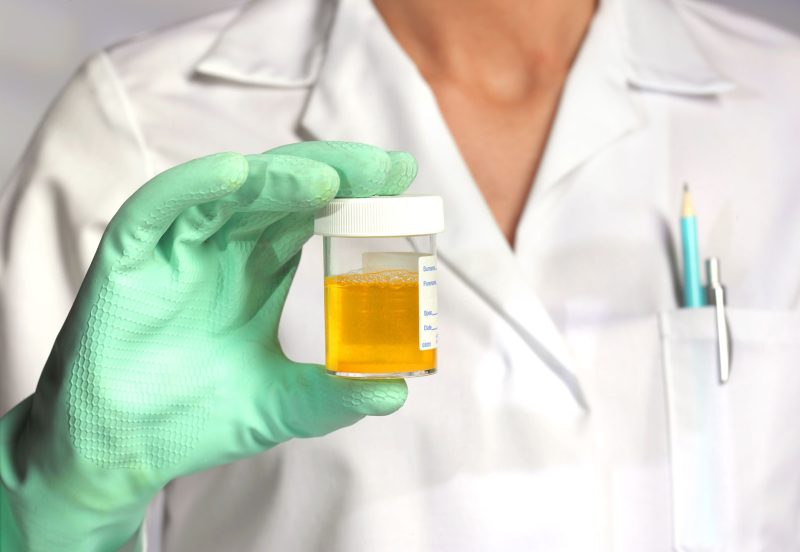 The presence of leukocytes in the urine can be due to various causes. However, in almost all cases, they appear with values above normal when an exam is performed.
Usually, this is due to contact with pathogens or germs, which indicates a possible infection related to the urinary tract, such as cystitis, urethritis, and prostatitis, among others.
Next, we will see in more detail how the presence of leukocytes in the urine is determined, what it means, the diagnosis of the pathology, and the treatment to follow.
The presence of leukocytes in the urine can be due to various causes. However, in almost all cases, they appear with values above normal when an exam is performed.
Usually, this is due to contact with pathogens or germs, which indicates a possible infection related to the urinary tract, such as cystitis, urethritis, and prostatitis, among others.
Next, we will see in more detail how the presence of leukocytes in the urine is determined, what it means, the diagnosis of the pathology, and the treatment to follow.
Contents
Urinalysis: what is it done for?
A urinalysis is a test performed from a sample supplied by the patient. It is done to detect various disorders, such as urinary tract infections and diabetes, among others, and to do routine controls, such as kidney disease. In a urinalysis, the appearance ( color of the urine, smell), acidity level, concentration, and presence of various substances are examined: proteins, glucose, and blood. Sometimes there are unusual results, such as the presence of leukocytes in the urine; Sometimes, more analysis and additional tests may be required to find the origin of the problem or pathology.What are leukocytes, and what is their function?
Leukocytes comprise a group of blood cells that can appear in the blood and lymphatic tissue. They are also called white blood cells since they do not have any type of characteristic pigmentation. There are various types of characteristics and functions. Among the best-known are the following:- Neutrophils.
- Eosinophils.
- Basophils.
- Lymphocytes.
- Monocytes.
Possible causes of the presence of leukocytes in the urine
It is possible to name several causes of the presence of leukocytes in the urine. In all of them, they appear with values above normal. According to the experts, this is due to an infection related to urination (caused by contact with pathogens or germs). Among the most common causes are the following.1. Hold back the urge to urinate.
Although this first cause may seem curious, holding the urge to urinate for a long time can be harmful, as it encourages the growth of pathogens, which then trigger infections.2. Cystitis
Cystitis is swelling of the urinary bladder, which makes the patient want to go to the bathroom. Likewise, you can feel pain and itching in the area and even have moderate-intensity fever. It is appropriate to point out that, in most cases, this inflammation is caused by a bacterial infection, so it is not surprising that there is a presence of leukocytes in the urine. It is not considered serious, although it can get complicated if it spreads to the kidneys, as explained in CinfaSalud.3. Urethritis
Changes in the urine test are also related to inflammation and infection of the urethra, which can be of sexual origin. Patients experience discomfort when urinating, frequent urination, moderate fever, and pain during intimate intercourse. Also, there may be increased vaginal discharge or itching on the penis.4. Vaginitis
As the name implies, vaginitis refers to inflammation of the vagina. As a general rule, redness and itching appear in this area, translating into discomfort during sexual intercourse. These symptoms can occur with an abnormal vaginal discharge with different characteristics depending on the trigger. In turn, various causes can cause it: a change in the balance of the vaginal microbiota, an infection, or a reduction in hormone levels (mainly estrogen), common in women after menopause.5. Acute and chronic prostatitis
 Prostatitis is a disorder in which men suffer from prostate gland swelling. Those affected may feel discomfort in the pelvic region and nearby areas, sexual problems (such as premature ejaculation or infertility), urinary symptoms, and other signs, including leukocytes in the urine when bacteria produce them.
Prostatitis is a disorder in which men suffer from prostate gland swelling. Those affected may feel discomfort in the pelvic region and nearby areas, sexual problems (such as premature ejaculation or infertility), urinary symptoms, and other signs, including leukocytes in the urine when bacteria produce them.
6. Pyelonephritis
Pyelonephritis is an infection and inflammation of the kidneys. The patient may experience lower back pain, headache (headache), nausea, vomiting, fever, chills, and even lower urinary tract infection, according to a publication by Barna Clínic. In the latter case, the affected person may suffer some of the symptoms discussed in other sections.7. Systemic lupus erythematosus
This condition, known as lupus nephritis, is characterized by a chronic inflammatory process that can cause leukocyturia, blood in the urine, high blood pressure, foamy urine, and swelling of the extremities. As is known, this is an autoimmune disease. In it, leukocytes and antibodies “attack” the body, affecting various organs, including the kidneys. The Mayo Clinic reveals this.8. Cancer
In the case of cancer, leukocytes may appear in the urine due to tumors (in the bladder, kidneys, or even the prostate ) or as an effect of treatment for such tumors. Regarding this last case, an investigation carried out on patients with gynecological cancer who were receiving chemotherapy yielded an interesting fact: probably, this leukocyturia is not due to the treatment itself but to a bad method when collecting the sample that can lead to contamination.9. Kidney or urinary tract stones
Renal lithiasis is a fairly common condition characterized by accumulating “stones” in the kidneys. They can also appear in other parts of the urinary tract or descend from the kidney to the ureters or bladder. According to a Clínica Universidad de Navarra publication, it is a chronic disease that tends to recur even after treatment. The presence of compatible symptoms (renal colic, bleeding through the urine, and repeated infections) justifies the performance of a urinalysis, in which leukocyturia is usually present. Imaging studies, such as an ultrasound or CT scan, are necessary to confirm the diagnosis.10. Glomerulonephritis
The renal glomerulus is a microscopic region of the kidney responsible for filtering the blood to produce urine. Millions of these structures are in each kidney, and various conditions can cause their inflammation, known as glomerulonephritis. Causes include some types of vasculitis, autoimmune diseases, and amyloidosis. Leukocyturia can appear with changes in tests that measure kidney function (such as blood creatinine). However, as the experts at MedlinePlus state, the definitive diagnosis requires a biopsy.How is the diagnosis made?
The diagnosis of leukocytes in the urine is made through a routine examination. This analysis collects 40-50 milliliters from the patient, disregarding the first jet, after cleaning the area. Thus, possible impurities from the urethra are discarded. Shortly after, the sample is centrifuged and checked in a specialized laboratory, where chemicals or other elements will be confirmed. Likewise, the cells and properties of urine are studied, as described at the beginning. It is estimated that the normal values of leukocytes in the urine should be below 5 per field in the sediment test. When the values are higher, it is called leukocyturia or pyuria.Treatment for the presence of leukocytes in the urine
 Treatment for the presence of leukocytes in the urine aims to treat the underlying cause of this alteration. In this line, the following guidelines can be highlighted:
Treatment for the presence of leukocytes in the urine aims to treat the underlying cause of this alteration. In this line, the following guidelines can be highlighted:
- If required, take certain drugs (antibiotics) to neutralize pathogens and prevent the worsening of the disorder, as well as anti-inflammatories.
- Maintain adequate hygiene in the affected area and the rest of the body. For example, it can be achieved by cleaning your hands when going to the bathroom, wearing loose clothing to avoid infections, etc.
- Control the daily habits of the person. Especially those related to diet, which must be healthy and balanced.